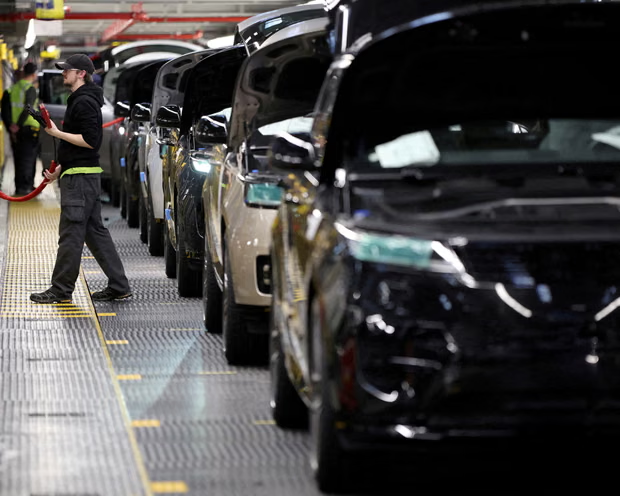Small companies supplying parts for Jaguar Land Rover cars are being asked by banks to put up their homes as personal guarantees to access emergency loans, with no direct government support available a month after a crippling cyber-attack halted production.
Jaguar Land Rover (JLR), Britain’s largest automotive employer, has not produced any vehicles since the end of August. The company said this week that limited manufacturing would restart “in the coming days,” but smaller suppliers warn they are at risk of collapse without immediate cash injections.
JLR, which manufactures the Jaguar and Land Rover brands, is reportedly considering advance payments to top-tier suppliers to speed up the flow of funds. However, many smaller parts makers have no direct financial relationship with the carmaker and depend on larger suppliers to pass down payments quickly.
Michael Beese, managing director of Genex UK, a company that presses metal parts for multiple JLR suppliers, said commercial banks required personal guarantees to release loans, potentially putting homes and other assets at risk. “I looked at getting a loan but was quoted interest of 16% and they wanted personal guarantees,” he said. “Why should I put my business and family home on the line when I’ve done nothing wrong?”
Beese has already laid off some of Genex’s 17 employees due to cash shortages. Other small suppliers said they cannot take loans because of legal concerns over directors’ responsibilities, leaving them with few options.
The Confederation of British Metalforming (CBM), a lobby group representing many JLR suppliers, warned that without urgent government intervention, the UK’s entire automotive supply chain could face permanent damage. The group said thousands of jobs are at risk and that the industry is crucial to the Labour government’s growth plans.
The government announced a £1.5 billion private loan guarantee for JLR, underwritten through state support, although the deal is not thought to be formally completed. Separately, JLR has secured £2 billion in new debt from banks without government backing. Critics say the £1.5 billion guarantee may not reach smaller, second-tier suppliers quickly enough to prevent business failures. Under UK law, tier-one suppliers can take up to 60 days to pay second-tier companies for new work, which delays emergency cash reaching smaller firms.
The CBM called for direct support for second-tier and lower-tier suppliers. “This is the only way we can get money quickly to where it is needed most, to prevent the supply chain from collapsing,” said Steve Morley, CBM president. The group also suggested using the British Business Bank’s growth guarantee scheme, which underwrites loans to smaller businesses.
Across the supply chain, thousands of workers have been laid off. Beese said that despite working to build stock and keep employees on, Genex had run out of space and materials. “Our customers can’t give us clear plans moving forward, so now I’m faced with some really tough decisions,” he added.
Some suppliers have requested temporary tax relief and wage support for employees while JLR rebuilds its systems. A Labour source said the government acted quickly to ensure JLR and its suppliers could receive support due to the tens of thousands of jobs at stake.
JLR, owned by India’s Tata Group, cannot provide firm restart dates because it has had to rebuild all production systems from scratch. This delay prevents suppliers from planning and ordering materials. The company has established a helpdesk to provide updates to its supply chain.
The production freeze has exposed vulnerabilities in the UK automotive sector, particularly for smaller businesses that rely on cash flow from large manufacturers. Without immediate support, industry experts warn that some suppliers could go out of business, threatening thousands of jobs and slowing JLR’s recovery from the cyber-attack.
The British Business Bank and the Department for Business were approached for comment but declined to provide statements.







